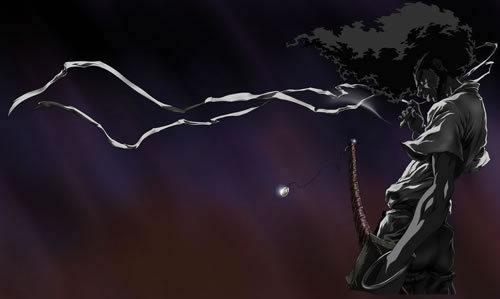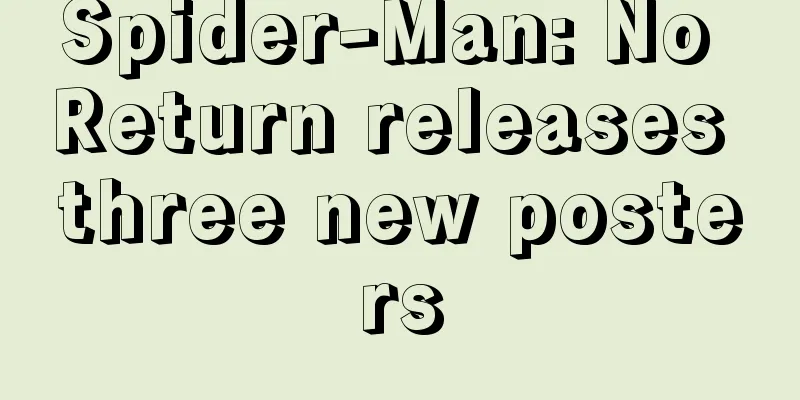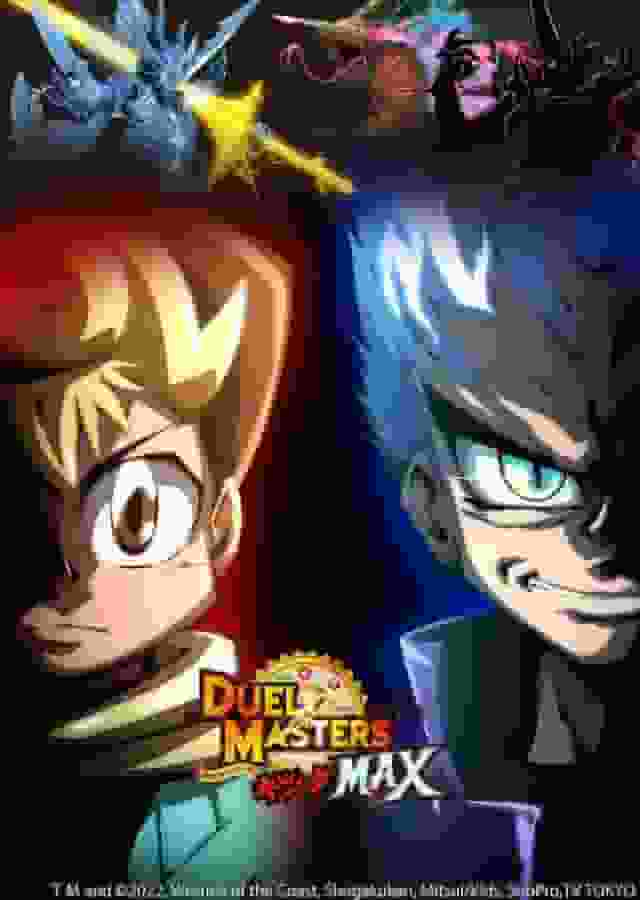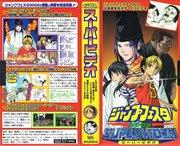Afro Samurai: The appeal and reviews of a stylish revenge drama

Afro Samurai: A tale of revenge by a master swordsman with a Japanese spirit and Western talent■Overview of the work"Afro Samurai" is a 5-episode anime series that aired in 2007 and is based on a manga by Okazaki Yoshishi. In Japan, it was broadcast on WOWOW over two consecutive nights on May 3rd and 4th, 2007. Animation was produced by GONZO and the director was Kizaki Fuminori. The series is known for being a huge hit across the US, with Samuel L. Jackson providing the voice of the main character, Afro Samurai. ■ StoryIn "The Way of the Dark Swordsman," there is a rule that whoever wears the "Number One" headband will rule the world. According to this rule, only "Number Two" is allowed to fight "Number One." When he was young, a boy saw his father killed in front of him, and swore revenge on his enemy, a gunman named Justice. Years later, the boy grows up to become an Afro Samurai wearing "Number Two"'s headband, and continues his journey of revenge. His companion on the journey is a man named Ninja Ninja who is a joker. When the two approach a small town and are attacked by some small fry, they learn that their sworn enemy is on Mount Sumeru. However, they are unaware that they are being watched by a mysterious religious group called "Mumu Bozu." Later, Afro is wounded by a poisoned arrow and falls into the valley. Seriously wounded and near death, Afro dreams of his childhood, caught between dreams and reality. He remembers the peaceful days when he was picked up by his swordsmanship master and lived with other orphans at a dojo, nurturing bonds with his older brother Jinnosuke and a young girl named Otsuru. When Afro regains consciousness, his wounds are healed by the dedication of a woman named Okiku. The two are soon attracted to each other, but Okiku is a ninja sent by "Mumu Bozu". However, for some reason, he is unable to kill Afro, and "Mumu Bozu", sensing his betrayal, kills Okiku - the beautiful grown-up Otsuru - and steals the memory chip containing Afro's swordsmanship data. As Afro and his friends head for Mount Sumeru again, they encounter a new assassin sent by Mumubozu. It is Aphrodroid, a clone robot that looks just like Afro. Afro struggles against this formidable foe who surpasses him in every way, but his master's words "Munen Musou" flash through his mind, and he defeats the assassin. He destroys Mumubozu's main camp and reaches the top of the mountain. Standing before Afro was Samurai Kuma, wearing the head of a stuffed bear. During the fierce battle, Afro realized he recognized the way Kuma slashed. Yes, the precious bond he had lost in exchange for revenge. When the bear head was torn off, Afro revealed the completely changed appearance of his former senior apprentice, Jinnosuke. He too was a sword demon obsessed with "revenge." Whose obsession will prevail? And can Afro defeat Justice, his father's enemy and the pinnacle of the "way of the dark swordsman"?! ■ExplanationThe anime series "The Sword is Mightier than the Gun," which excited the whole of America with Samuel L. Jackson playing the Afro Samurai, has finally made a triumphant return to Japan. This anime series, in which the main character, an Afro-meets-Samurai, engages in deadly battles with rival gunmen and swordsmen, was broadcast nationwide on the major cable channel Spike TV, and overnight threw the whole of America into a whirlwind of excitement, sending people into a "COOL!" frenzy. The key to solving this mystery can be said to lie in the trinity of "Bushido," "Japanimation," and "Hip Hop." It is well known that Akira Kurosawa's Seven Samurai and other films introduced sword fighting to North American films. Furthermore, in the 1990s, the Japanese historical action film Ninja Scroll (Japanese title: Jubei Ninpu-cho) recorded sales of nearly 500,000 copies, and Bushido struck a second blow in the American continent with the name Japanimation. Now, to commemorate the theatrical release, it has been newly edited and released as the original theatrical version of Afro Samurai. This work is a limited edition comic by Japanese artist Noriyoshi Okazaki, which was discovered by GONZO, the studio behind Blue Submarine No. 6 and Brave Story, and was planned to be made into an anime. Samuel L. Jackson happened to see it and said, "This is the job I should be doing!", and announced his participation in the production, which made a big step forward for the project. Samuel, who once played one of the most famous "swordsmen" in the galaxy, readily agreed to voice two roles, including the main character Afro Samurai, and other talented Hollywood actors also appear in the film. The charismatic artist The RZA, who is also famous for his film scores in films such as Kill Bill and Ghost Dog, also participated, providing a hip-hop sound with tremendous enthusiasm, saying, "Afro Samurai should be an epoch-making work in urban culture!" Up until now, there have not been many cases of "Japanimation" successfully "returning" to Japan. However, at the preview held in Shibuya at the end of April, the movie won enthusiastic support! This is no surprise, as the director is none other than Kizaki Fuminori, who has worked on "Basilisk: The Koga Ninja Scrolls" and other works, and is highly regarded by core anime fans in Japan and overseas alike. Behold, a bloody tale of an afro-haired samurai, a daring hero, slashing and slashing and slashing bows, missiles, and androids in a world reminiscent of a period drama. He even proves that "the sword is mightier than the gun" in a duel with a villainous gunman. All of this is not comical, but COOL! Seeing is believing, as the saying goes. Afro Samurai has made a rare triumphant return to Japan not only as a leader in the contemporary cultural scene, but also as samurai of "global content" that cuts through the cultural gap between "pop" and "otaku" with one stroke. ■Cast
■ Main staff
■ Main Characters
■Subtitle
■ Related works
■ Theme songs and music
■ Evaluation and recommendation"Afro Samurai" draws viewers in with its unique visuals and storytelling. In particular, Samuel L. Jackson's voice performance adds depth and realism to the character of Afro Samurai. The hip-hop sound by The RZA also enhances the overall atmosphere of the film, further enriching the viewing experience. While the film centers on the theme of revenge, it also depicts a human drama of friendship, betrayal, and self-sacrifice. Afro Samurai's journey is not just a story of revenge, but also a journey to reexamine one's own meaning of existence and values. This allows viewers to empathize with Afro's growth and suffering and become deeply immersed in the story. "Afro Samurai" also has a unique worldview that combines Japanese visuals with Western hip-hop culture. This fusion provides a fresh experience both visually and aurally, and leaves a strong impression on viewers. In particular, the setting of an afro-haired samurai has a very strong visual impact and is the symbol of the work. Furthermore, after its success overseas, the film also received high praise in Japan. This was all thanks to the talent of director Fumitomo Kizaki and the production capabilities of GONZO. Fumitomo Kizaki is highly regarded by anime fans in Japan and overseas, and his skills are on full display in "Afro Samurai." "Afro Samurai" is not just an anime, but a symbol of cultural crossover. The fusion of bushido and hip hop offers viewers a new perspective and contributes to promoting intercultural understanding. For this reason, "Afro Samurai" is a work worth recommending. Finally, "Afro Samurai" is a highly stimulating work both visually and aurally. The powerful action scenes, the individuality of the characters, and the depth of the story will keep the viewer entertained. This is a must-see work, especially for viewers who empathize with Afro Samurai's journey of revenge and are interested in how the story unfolds. |
<<: Review of "Kyōshiro and the Eternal Sky": A moving story of youth and adventure
>>: The appeal and reviews of Odenkun Special: A must-see special edition for fans
Recommend
Trailer for Mobile Suit Gundam Cucurus Doan's Island announced, to be released next summer
Today (December 21), the movie "Mobile Suit ...
The movie version of the campus romance manga "Senior is a Boy" was released on Valentine's Day 2025
The campus romance comic "My Senior is a Boy...
EVA's creator Hideaki Anno is involved in the production of a new Ultraman movie! The original new EVA may be delayed
Hideaki Anno, the creator of the classic animatio...
The appeal and evaluation of "Wakamoto March": A moving story and deep characters
Wakamoto March - Wakamoto March overview "Wa...
Behind the scenes of Netflix's "One Piece" live-action drama, embark on the Grand Line!
Recently, Netflix released a behind-the-scenes sp...
The appeal and reviews of "Salty Ray": A moving story and deep characters
"Salty Ray": A story of a girl torn bet...
Chris Pine to star in "Act of Violence" and team up with Ben Foster again
STX Films has acquired the North American distrib...
Avengers 2 villain Strucker joins Indiana Jones 5
Thomas Kretschmann, who played the villain Struck...
Lupin vs. Sherlock Holmes: A thorough analysis of the ultimate showdown between the great detective and the phantom thief
"Lupin vs. Sherlock Holmes": A fierce s...
'The Hobbit' casting director fired for only casting 'light' skinned actors
According to foreign media reports today (Decembe...
The new Batman reveals its first poster and logo. Ben Affleck's Batman returns to The Flash
The new version of "Batman" starring Ro...
Uchitama?! ~Do you know my Tama?~ - Appeal and reviews: A must-see anime for cat lovers
The appeal and evaluation of "Uchitama?! ~Ha...
Detailed review and evaluation of the anime with live DVD of the Goulart Knights
Goulart Knights Live DVD Bundle Anime - Goulart K...
"Yuru Camp△" short animation releases new CM to be broadcast in January 2020
According to the latest news, the official "...
The appeal and evaluation of "Ashibe 2": The success of the sequel and a new adventure
"Shounen Ashibe 2" - Welcome to the hea...









